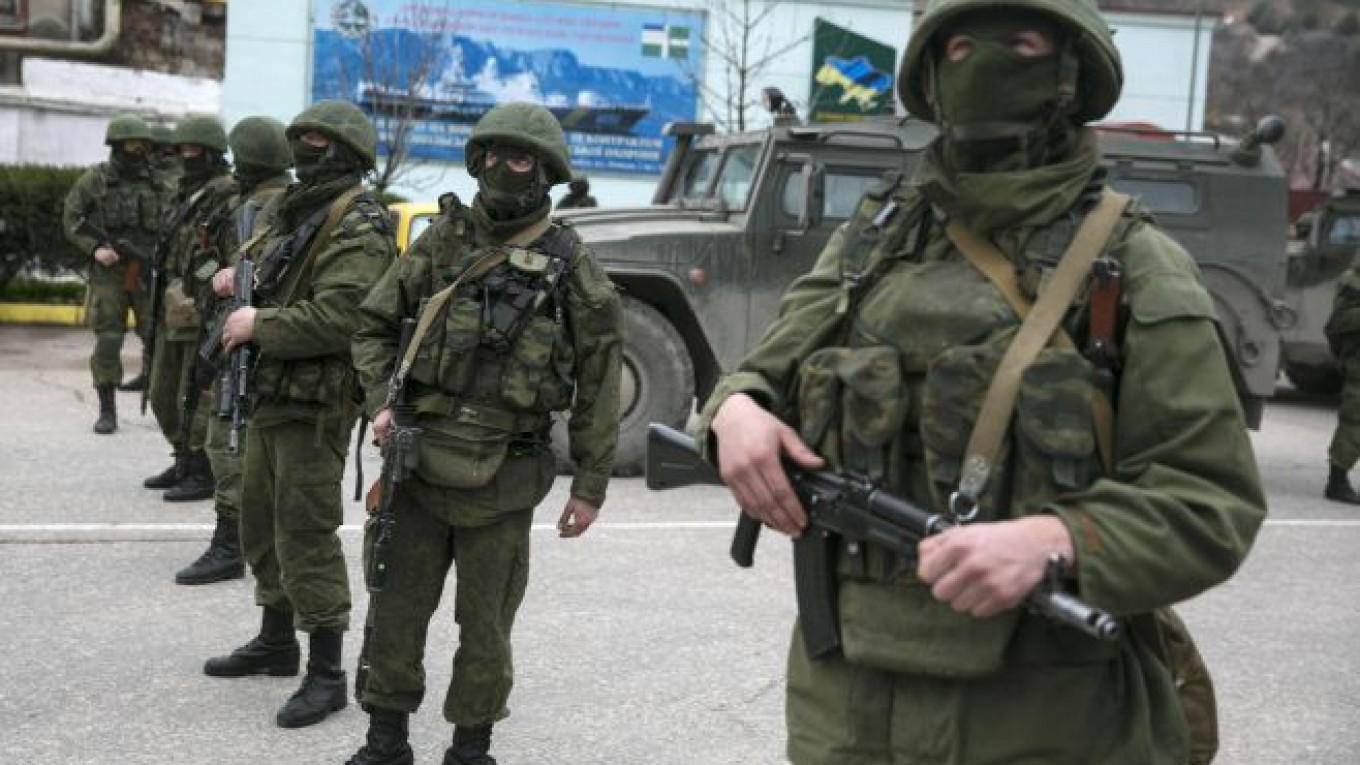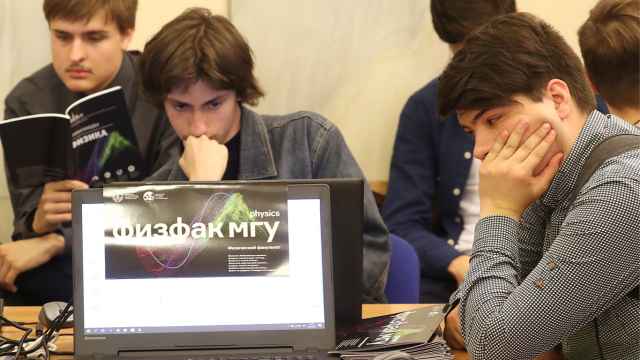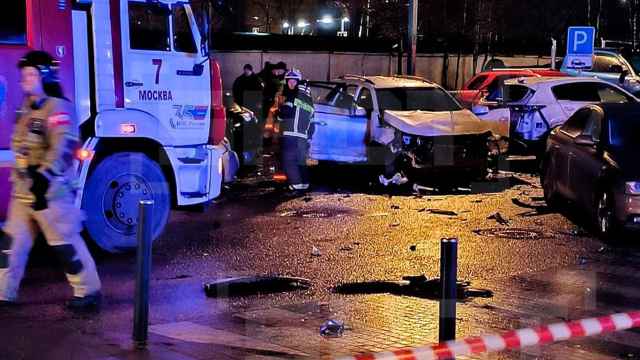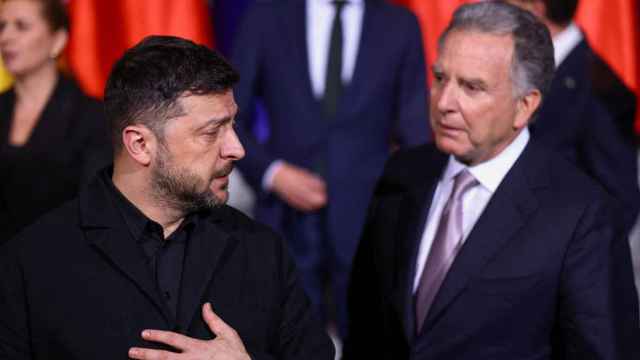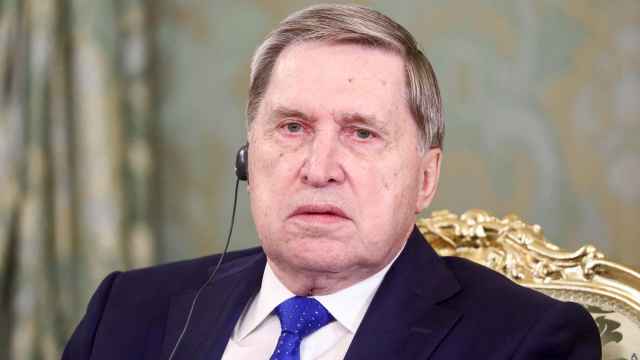NATO's secretary-general warned Moscow on Sunday it was threatening peace in Europe with its seizure of Crimea and should "de-escalate tensions," but diplomats said the alliance was unlikely to agree on major steps to rein Russia in.
Speaking moments before chairing an emergency meeting of NATO ambassadors, Anders Fogh Rasmussen warned that Russia's actions in Ukraine could destabilize the continent.
"What Russia is doing now in Ukraine violates the principles of the United Nations charter," Rasmussen told reporters before a meeting of the North Atlantic Council, made up of the permanent representatives to the 28-nation military alliance.
"It threatens peace and security in Europe. Russia must stop its military activities and its threats."
Despite the strong words, diplomats said they did not expect NATO to agree on significant measures to pressure Russia, with the West struggling to come up with a forthright response that does not risk pushing the region closer to military conflict.
The stand-off has created the greatest moment tension between Russia and the West since the collapse of the Soviet Union in 1991, an event President Vladimir Putin has described as the geopolitical catastrophe of the 20th century.
"Do not expect big decisions," said one NATO ambassador.
Another diplomat to the military alliance added: "I think we must be careful not to give the Russians anything that could rile up pro-Russian sentiment in Crimea."
Despite a 90-minute phone call between President Barack Obama and Putin on Saturday, and other calls to the Kremlin by European leaders, Russia shows no sign of backing away from its de facto occupation of Crimea and presence in east Ukraine.
U.S. Secretary of State John Kerry warned Russia it could face targeted sanctions including visa bans, asset freezes and trade isolation if it did not back down, and said major world powers were determined to isolate Moscow.
Moscow has said it is merely protecting the lives of Russian-speaking nationals, and appears to be calculating that the West will not risk a wider conflagration by taking anything approaching military action against it.
While Ukraine is associated to NATO, it is not a member and therefore cannot invoke the alliance's most powerful diplomatic tool, known as Article 5, which states that an attack against one member is an attack against all.
Energy Matters
Given those limitations, diplomats and military experts said the most that could be expected might be that the U.S. would move some warships into the Black Sea, an action it could undertake unilaterally, rather than under NATO's auspices.
"NATO can only say what 28 nations allow it to say," said Karl-Heinz Kamp, academic director of the Federal Academy of Security Policy in Berlin.
"There are member states which are more pro-Russia than others."
Several NATO and European Union member states depend on Russia for energy, giving them geopolitical reasons for wanting to maintain decent relations with Moscow, even if they deplore its actions in Ukraine.
After more than a decade of conflict in Afghanistan and Iraq, and having failed to prevent Russia's partial occupation of Georgia in 2008, there is a deep-seated reluctance among Western powers to provoke a military escalation.
"Wars are not very popular at this moment," said Tim Ripley, a military expert with Jane's Defence Weekly magazine.
And yet if the West fails to find a way to bring pressure to bear on Russia, it could do itself lasting damage.
"If the Russians take over Crimea, it would humiliate the West and show it to be a paper tiger, unwilling to protect a European country against outside aggression," said Ripley.
"It would give the Russians huge territorial waters to control the Black Sea … it would be a massive humiliation."
'Chicken or Egg'
Short of a military response, the most likely steps NATO could take include cutting cooperation with Russia, with which it has frequent contact at ministerial level and has conducted joint military exercises.
Political or economic sanctions against Moscow could also be an option, but that would be the primary responsibility of the UN, where Russia has a veto on the Security Council, or else the EU or U.S. acting in consort.
"The most effective support NATO members could give Ukraine would be financial sanctions against Russia, refusing to buy its oil and gas," said Ripley, laying out a high-risk strategy.
"It is a chicken or egg question. Do they need money more than we need their oil and gas?"
Alternatively, the West could move to isolate Russia, which will host the Group of Eight summit in Sochi in June. Already four G8 members have suspended preparations for the gathering.
"If the G8 expels the Russians and turns itself into a G7, that would hurt Putin's self-esteem," said Nick Witney of the European Council on Foreign Relations.
A Message from The Moscow Times:
Dear readers,
We are facing unprecedented challenges. Russia's Prosecutor General's Office has designated The Moscow Times as an "undesirable" organization, criminalizing our work and putting our staff at risk of prosecution. This follows our earlier unjust labeling as a "foreign agent."
These actions are direct attempts to silence independent journalism in Russia. The authorities claim our work "discredits the decisions of the Russian leadership." We see things differently: we strive to provide accurate, unbiased reporting on Russia.
We, the journalists of The Moscow Times, refuse to be silenced. But to continue our work, we need your help.
Your support, no matter how small, makes a world of difference. If you can, please support us monthly starting from just $2. It's quick to set up, and every contribution makes a significant impact.
By supporting The Moscow Times, you're defending open, independent journalism in the face of repression. Thank you for standing with us.
Remind me later.


